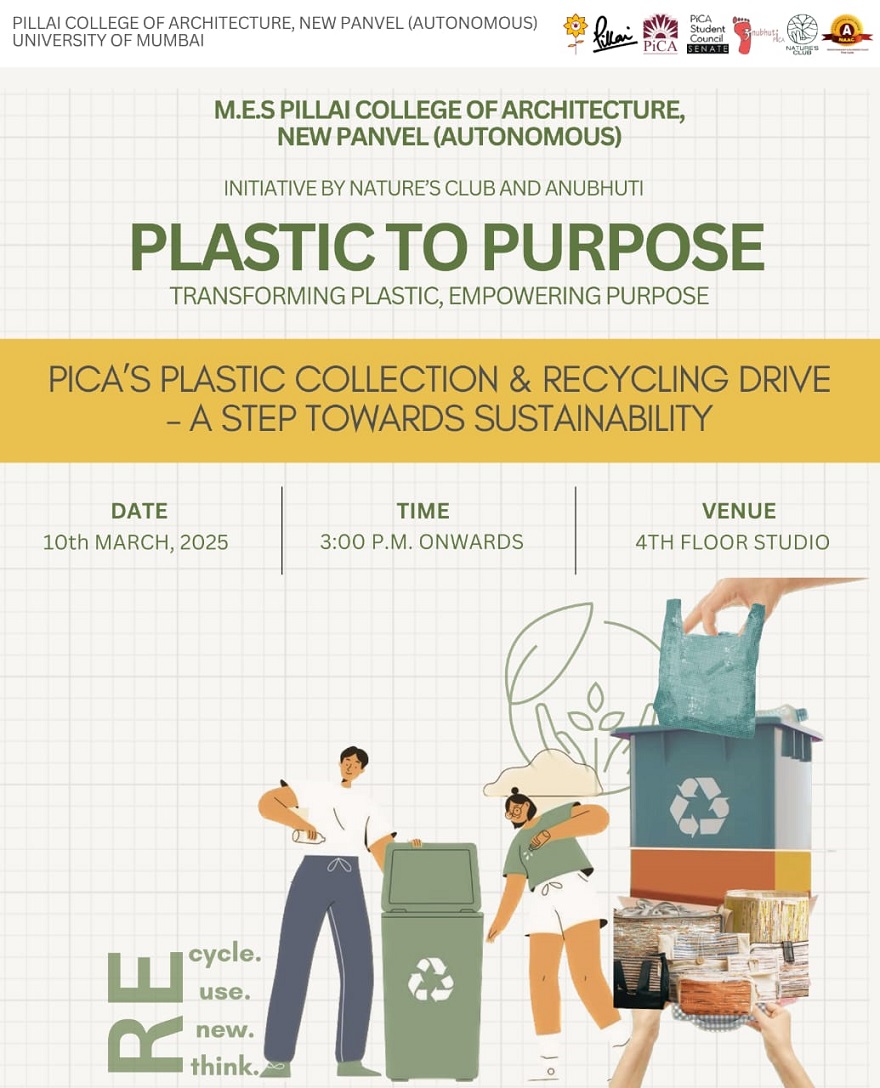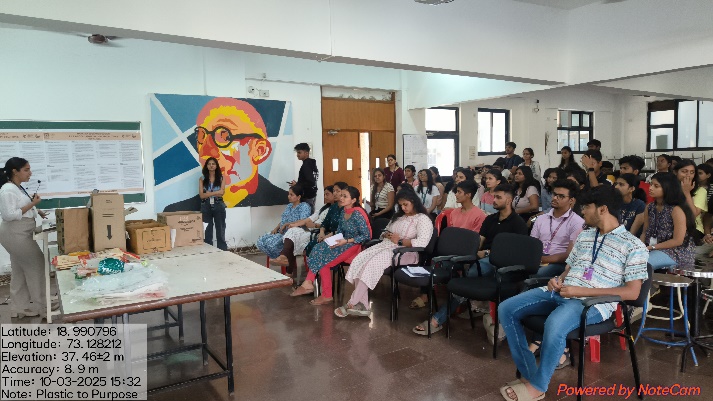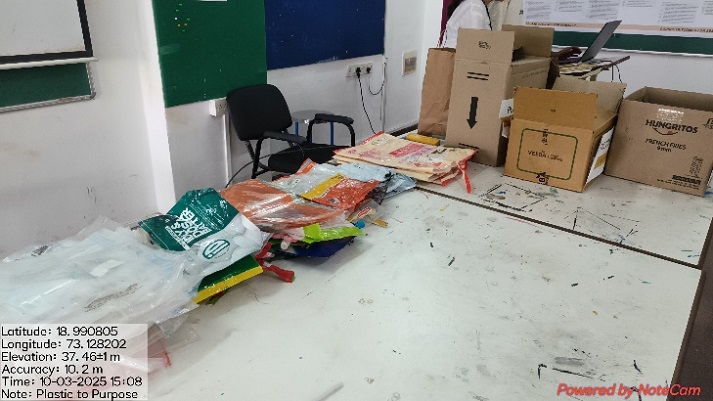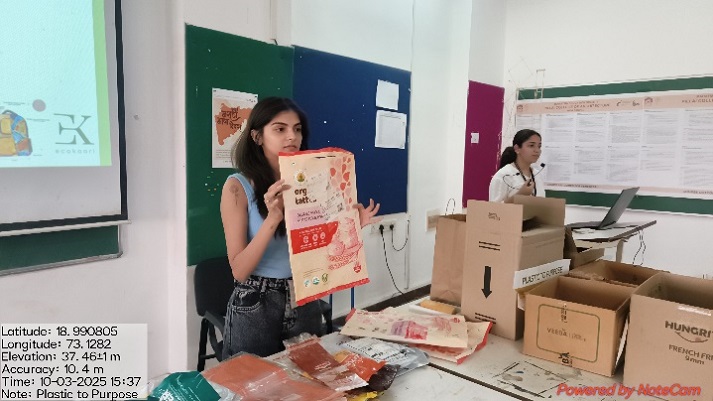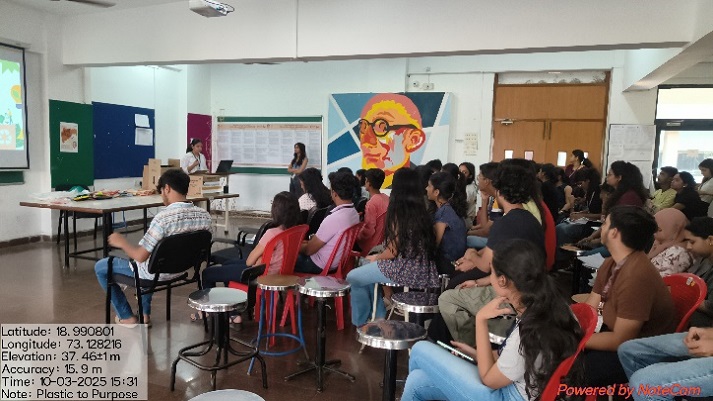| Subject | Plastic to Purpose |
| Session | II |
| Year | 2024-25 |
| Date | 10th March, 2025 |
| Time | 03:00 p.m. – 04:00 p.m. |
| Venue | 4th Floor Studio |
| Faculty | Co-Ordinator: Prof. Jagrati Sehgal |
| Faculty | Prof. Prathamesh Deshpande |
The event was conducted on the 10th March 2025, Monday, in 2nd floor studio at 2:00 p.m. – 4:00 p.m.
The drive was initiated by Nature’s Club and Anubhuti at M.E.S. Pillai College of Architecture, New Panvel. It involved placing labeled collection bins in classrooms, encouraging student participation, sorting and storing collected plastic wrappers and packets, and partnering with recycling businesses like Recharkha and Ecokari to upcycle the waste into sustainable products.
The event was structured into multiple phases:
1. Planning and Preparation started on 13th February 2025
- Event Idea was discussed with Nature’s Club student members and their suggestion were taken for conduction of event.
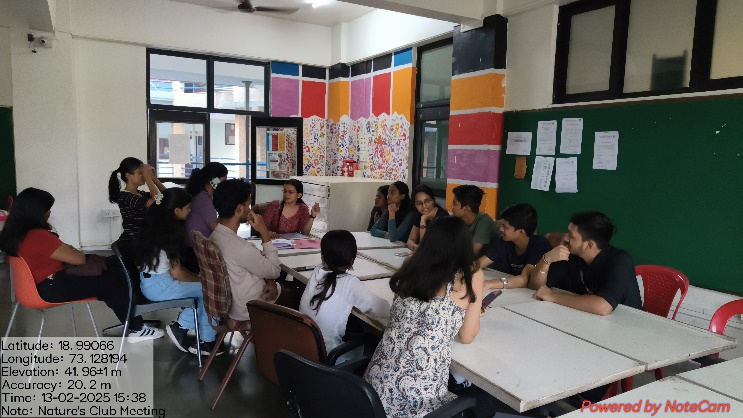
2. Final Preparation Plan on 5th March 2025
- Final Preparation before the event was done and volunteers of Nature’s Club and Anubhuti were assigned duties for managing event.
- Student head of Nature’s Club Yutika Tawade manages and took major responsibility to conduct the event.
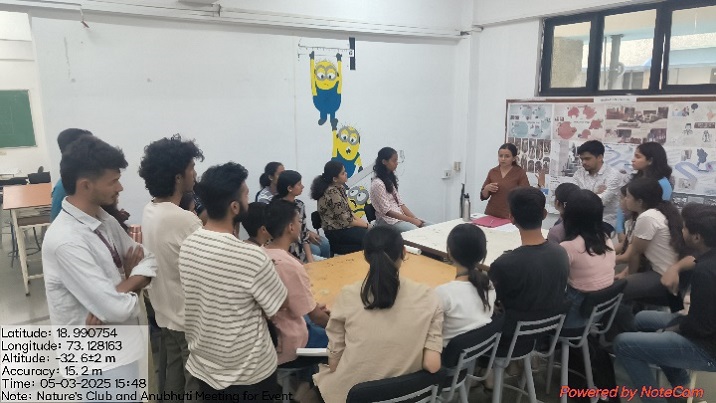
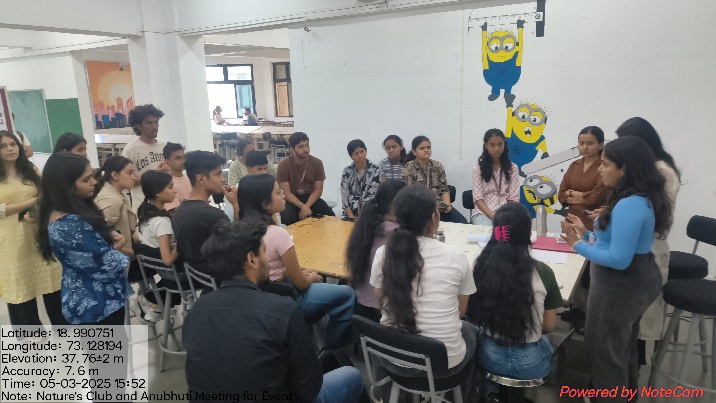
3. Orientation Event and Start of Collection Phase: on 10th March 2025
- Specially labelled plastic collection bins were placed in accessible areas of classrooms and staffrooms.
- Posters and visual guides were used to instruct students on what types of plastic could be collected.
- Items such as polythene bags, snack wrappers, and gift wraps were among the accepted waste materials.
It involves Student as well as teaching and non-teaching staff participation & responsibility.
- Every student and staff members were encouraged to dispose of plastic waste (e.g., wrappers and packaging papers) in designated bins instead of
regular trash. - This phase emphasized personal accountability in waste disposal and promoted environmental responsibility.
In between the process is going on and some of them are recorded on 25th March 2025
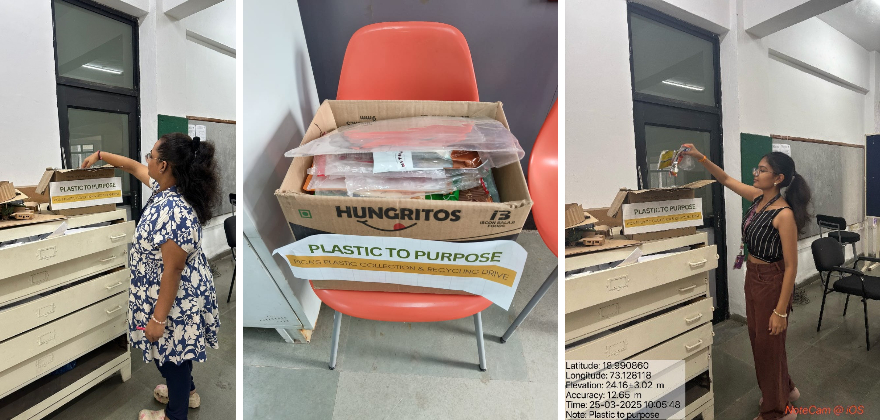
Collection on 8th April 2025
- Volunteers from the Nature’s Club managed the collection process, ensuring proper sorting and temporary storage of plastic waste before it was sent for recycling.
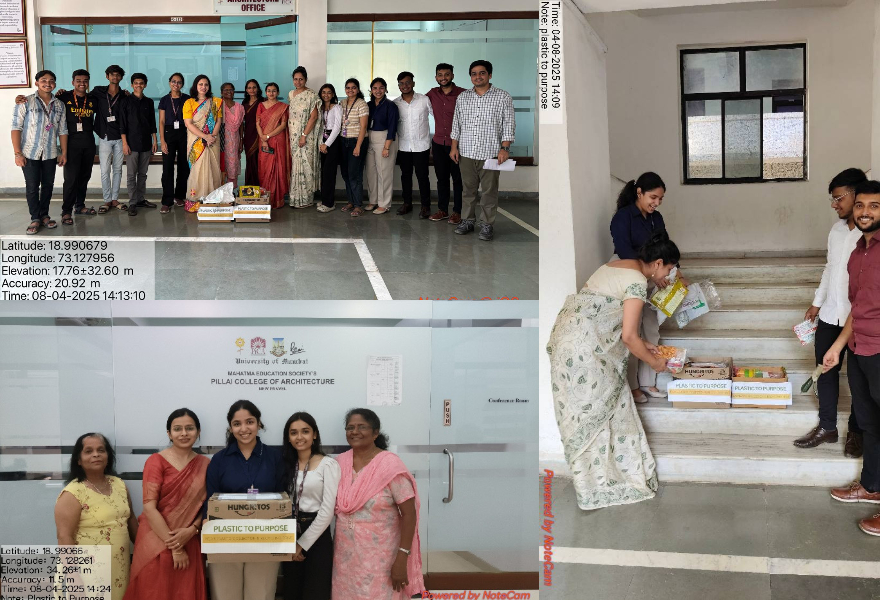
Send to Upcycle on 9th April 2025
- The collected plastic waste was handed over to eco-friendly recycling organizations, reCharkha..
- These businesses specialize in upcycling waste plastic into sustainable products like fabric, accessories, and home décor.
This donation & transformation:
- The upcycling process gave plastic waste a second life by converting it into useful and eco-friendly products.
- This step reinforced the principles of circular economy, reducing the demand for new plastic production and minimizing environmental impact.
The event addressed the global plastic waste crisis, highlighting its environmental impact and promoting a circular economy where waste is repurposed instead of discarded. It also fostered environmental awareness and responsibility among students.
The event held great significance as it tackled one of the most pressing environmental issues—plastic pollution. Some key aspects of its importance include:
- Raising Awareness: Many people are unaware of the sheer amount of plastic they use daily and the impact it has on the planet. The event helped students realize that plastic waste does not simply “disappear” but remains in the environment for centuries.
- Environmental Impact: With over 400 million tons of plastic waste generated worldwide every year and 91% of plastic never being recycled, the event emphasized the urgent need to change current disposal practices.
- Health Hazards: Microplastics have infiltrated our food, water, and even human blood. The event educated participants about these hidden dangers.
- Promoting a Circular Economy: Instead of discarding plastic waste into landfills or oceans, the event provided a sustainable alternative by upcycling it into new products.
- Encouraging Student Participation: Educational institutions contribute significantly to daily plastic waste. By engaging students in active waste management, the event ensured that future architects and professionals understand and integrate sustainability into their work and lifestyle.
The initiative emphasized that small individual efforts can collectively create a significant positive impact. It encouraged students to adopt sustainable habits and support upcycling businesses, contributing to a cleaner and greener future.
The event served as a powerful reminder that sustainability is not an option but a responsibility. Key takeaways include:
- Small Acts Create Big Change: Individual actions, such as segregating and recycling plastic waste, can collectively lead to a significant environmental impact.
- Sustainability Should Be a Lifestyle: Future architects, designers, and professionals must incorporate eco-friendly practices in their daily lives and careers.
- Supporting Upcycling Businesses Makes a Difference: Organizations like Recharkha rely on waste plastic as raw material, creating eco-friendly products while also generating employment, especially for underprivileged communities.
- A Call to Action: The event encouraged students to be conscious consumers, minimize plastic usage, and actively participate in sustainability initiatives, reinforcing the idea that sustainable living begins with small, mindful steps.
Through this initiative, the institution demonstrated a strong commitment to environmental conservation and inspired students to be a part of the solution rather than contributors to the problem.
